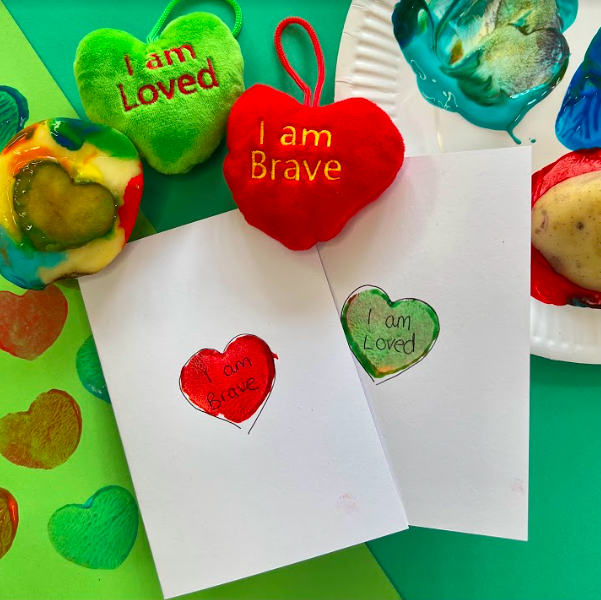Talking about challenging behaviour is challenging to say the least. There are many different models, disciplines, theories, and reasons why some children have challenging behaviour.
Counsellors, one way or another, work with behaviour in many situations. People can be unhappy about the behaviour of colleagues at work, friends, children and partners.
To deal with challenging behaviour, we must first identify why the challenging behaviour is exists.
It’s time to put your detective hat on.
Challenging behaviour can be the result of frustration and negative thoughts that a child may have about themselves or their experiences. Generally, we are dealing with emotions that children cannot verbalise or manage by the time their behaviour becomes challenging. Children have undeveloped brains, and are not always able to cope, balance, or rationalise. They see the world through their young eyes and respond to it in the only way they know how.
Examples of Challenging Behaviours from early years to later in life:
- Fighting or biting
- Continual screaming
- Bed Wetting
- Resisting authority/instruction
- Uncontrollable crying or tantrums
- Overthinking
- Bullying
- Eating issues
- Self-harming
- Substance misuse
- Obsessions
- Withdrawing from society.
Over time children with challenging behaviour can often be seen negatively, and their behaviour can escalate and become disruptive. Children with challenging behaviour can give up and become what people expect them to be. Many children can feel misunderstood and may not have the words or understanding to explain what’s going on for them. They may simply be acting out their feelings in the absence of being able to express themselves through words.
How do we deal with challenging behaviour?
If we attempt to understand a child by talking to them and giving them space to express, they will feel heard. Their words may not come easily to them and therefore it’s important not to rush them. They may have serious issues that are difficult to express and require a supportive adult to listen and help them. Parents, teachers and school counsellors can all play a major role in supporting a child. Listening first is key to understanding, before being able to deal with the behaviour.
Common themes behind challenging behaviour:
- Feeling like they don’t belong
- Feeling not good enough
- Lacking independence
- Not having the words to express themselves
- Not having the skill or ability to ‘keep up’
- Feeling unsupported
- Feeling unheard.
To feel mature, independent and able to achieve takes skills that need to be developed. To develop them well requires people that believe in us. Could this be why some children find it more difficult than others to cope?
It all begins in early development and parenting.
Real World Example:
Think about times in your daily routine when your child finds it difficult to keep up with you, and their behaviour begins to change. Getting ready for school, doing fun tasks, dinner time, changing their clothes, going to bed, playing a game or sport, etc. They may quickly change from being eager and excited to frustrated and angry. Their behaviour becomes challenging and can escalate quickly.
A child’s emotions go up and down, and they can sometimes feel out of control and overwhelmed, which scares them. Their brain is full of, ‘What’s that?’, ‘How do you do that?’, ‘How does that work?’, ‘What does that mean?’, ‘Am I good at this?’, and ‘I will never be as good as them’ thoughts. Remain calm and patient, give your child space to practice regulating their emotions and use the check list to support their needs. Answer the questions as best you can and take time to reassure them.
Deal with challenging behaviour as best as you can in the moment. When things calm down, you can then teach your child new skills and talk through their difficulties. Talk to children about what happened, work on their problem-solving abilities with them, and build new skills ready for the next time something happens. This will all help much more than trying to deal with the behaviour and teach change all when emotions are high.
Use open questions to work through situations with children and be clear about what you are asking of them.Children feel secure when they understand expectations. They will also need to be told a few times, (repetition) before they understand or remember to do it next time.
When your child faces difficulties you can negotiate with them to formulate a plan. Discuss the issue and ask them what is going on, decide on some options together that help to get through the situation. For example, if they are struggling to sleep and it turns out they’re scared of the dark, you could suggest a low light can be left on, but only if they promise to try and sleep. Agree to monitor the situation with them and make changes if needed. This will help build their confidence and independence.
Children are more likely to follow through with you if they are part of the plan in the first place.
Commend your child’s new problem-solving skills with a high five or a big hug to end on a positive note. Thenmonitor the situation with reminders of what you agreed if they play up, to avoid things drifting back into the old situation. Use this same strategy with other situations.
Building new skills can reduce challenging behaviour. These skills can also help them to problem-solve when you are not around. We know children will try ways to get around anything. Be clear, stick to the plan and if it doesn’t work out, they were a part of that plan and will have to think about that in future discussions.
Checklist for Challenging Behaviour:
- Talk to your child when they are upset to understand
- Tell them when they are ready to talk, that you will listen
- Remind children to take a few breaths when they appear stressed
- Reassure them that they are okay and safe
- Remind them that they can’t always have everything they want
- Check if they have overheated or are tired, hungry or thirsty.
Help your child to practice new skills by taking small steps with them. Have fun and practice real world skills as a game. If they are getting frustrated about learning something, get them to tie someone else’s laces in the home for fun. Go through the process with them first, get them to slow down and think about it. As they learn they will also copy you. Children love it when they don’t even realise you are helping them to develop and grow.
Children want to please you. Reassure your child that we don’t always get things right the first time. Share some of your experiences and laugh about them with the message that everything needs practice. All the information you give them helps them to understand that this is what everyone goes through when they are learning something new.
Children learn by mixing with other children. Encourage sharing and using manners when interacting with others. Guide them in the right direction, and role model appropriate interactions.
Children have to learn to cope with change to learn about disappointment and how to adapt emotionally. Talk them through their experience and share ideas to cope as well as listening to how they feel.
Children need to know your values by separating the person from the behaviour: I love you, but I didn’t appreciate your behaviour today. Teach children the ‘why’ to help them learn. It was unkind, unsafe, disrespectful towards others, etc. You made your friend cry, now he may not want to play with you.
Hug-a-Bug World promotes a sensitive and Positive Parenting perspective. It supports the ability to relate, empathise and align with children’s emotions and stages of development. Children need to be taught skills in a trusting relationship. They need to know that their caregivers want the best for them rather than reacting in ways that have a lasting negative effect on them. Challenging behaviour can be a result of a child’s negative experiences, and so it is important for parents and carers to be mindful of this.
What are your thoughts and experiences around dealing with children’s behaviour?
………………………………………………………………………………………………………………………………………………………………………………………………………………………………………………………………………………………………………………………………………………………………………………………………………………………………………………………………………………………………………………………………………
3 Take aways:
To deal with challenging behaviour we must first identify why the challenging behaviour exists.
Challenging behaviour can be the result of frustration and negative thoughts a child may have about themselves or their experiences.
If we attempt to understand a child by talking to them and giving them space to express, they will feel heard.
Reflection:
What do you do to address challenging behaviour once things have calmed down?




